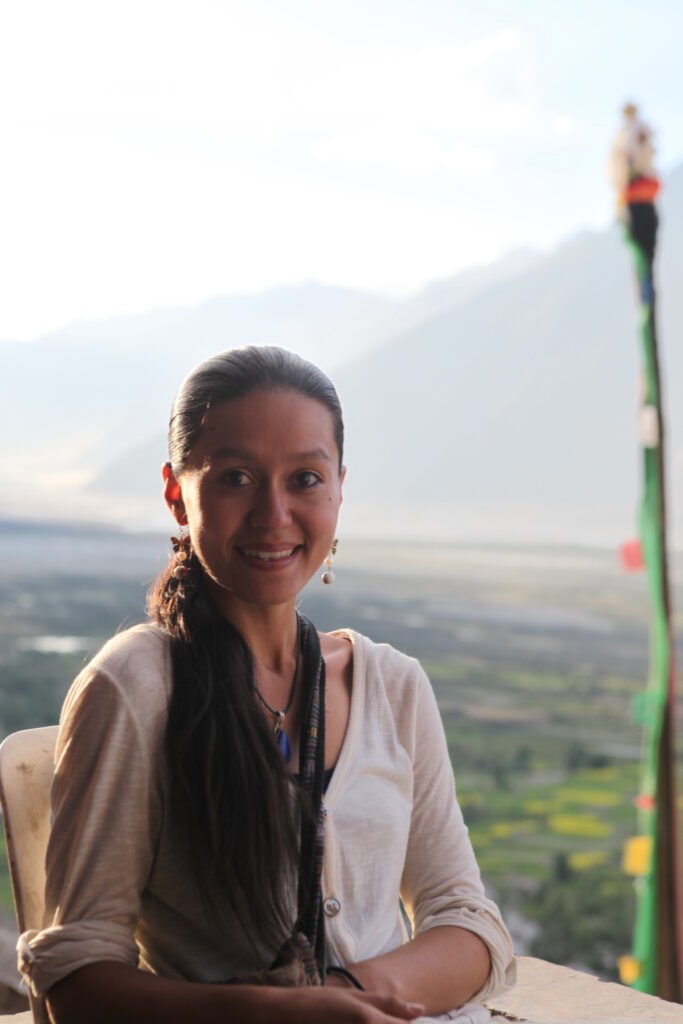Sophie Chao, University of Sydney – Why Mourning Matters in the Anthropocene
 How humans react to environmental change can take many forms.
How humans react to environmental change can take many forms.
Sophie Chao, Discovery Early Career Researcher Award (DECRA) Fellow and Lecturer in the Discipline of Anthropology at the University of Sydney, explores one.
Sophie Chao is an anthropologist interested in the intersections of Indigeneity, ecology, capitalism, health, and justice in the Pacific. She is author of In the Shadow of the Palms: More-Than-Human Becomings in West Papua and co-editor of The Promise of Multispecies Justice. She previously worked for the human rights organization Forest Peoples Programme in Indonesia, supporting the rights of forest-dwelling Indigenous peoples to their customary lands, resources, and livelihoods. Sophie is of Sino-French heritage and lives on unceded Gadigal lands in Australia.
Why Mourning Matters in the Anthropocene
Human activity is reconfiguring the planet at an unprecedented scale and speed. Whether we’re talking about the conversion of biodiverse forests into monocrop plantations, the extraction of minerals from mines and oceans, or the industrial farming of animals, modern capitalist systems are producing forms of loss and destruction that are differently experienced and responded by different human communities. One such response is mourning.
Over the last decade, I have been conducting fieldwork among the Indigenous Marind people of West Papua, who have seen vast swaths of their lands and forests converted to industrial oil palm plantations. I came to understand that the obliteration of the forest represents to Marind far more than just the loss of the resources they need to survive and thrive. Rather, deforestation is understood as a form of multispecies death – the death of the plants, animals, elements, and ecosystems whom they entertain intimate and ancestral relations of kinship. Marind are responding to these deaths through new forms of mourning – for instance, planting of sago suckers to encourage ecosystemic flourishing, collectively weaving of fiber bags in patches of forest, and singing prayers to animals trampled along highways or starved by the plantation.
In this age of planetary unravelling, mourning, as Marind do, matters because it allows us to acknowledge and grieve loss, but also to create or revive connections with more-than-human others. It reminds us that we share the world with many other kinds of beings. It invites us to consider how we might remember those who must die for us to thrive. In these and many other ways, multispecies mourning thus constitutes a crucial disposition for our times – one that is as much about reckoning with loss and grief, as it is about crafting other possibilities for living together in always already more-than-human worlds.
Read More:
My professional website: www.morethanhumanworlds.com
Chao, Sophie. 2023. “How to Mourn a Forest: A Lesson from West Papua.” Aeon. 23 May. Available online.
Chao, Sophie. 2022. In the Shadow of the Palms: More-Than-Human Becomings in West Papua. Durham, NC: Duke University Press. Trailer available online.
Chu, Kymberley, and Sophie Chao. 2023. “An Interview with Dr. Sophie Chao on Palm Oil Worlds.” American Ethnologist website. 13 February. Available online.
Chao, Sophie. 2022. “International Day of the World’s Indigenous Peoples: Celebrating the Custodians of Global Biocultural Diversity.” Duke University Press Blog. 9 August. Available online.


